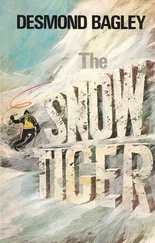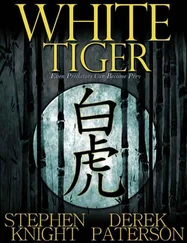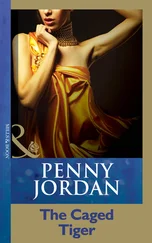Why couldn't things be so simple for me?
A low growling noise made me turn. A black dog was turning in circles behind me. A pink patch of skin-an open wound-glistened on its left butt; and the dog had twisted on itself in an attempt to gnaw at the wound. The wound was just out of reach of its teeth, but the dog was going crazy from pain-trying to attack the wound with its slavering mouth, it kept moving in mad, precise, pointless circles.
I looked at the sleeping woman-at her heaving breasts. Behind me the growling went on and on.
That Sunday, I took Mr. Ashok's permission, saying I wanted to go to a temple, and went into the city. I took a bus down to Qutub, and from there a jeep-taxi down to G.B. Road.
This, Mr. Premier, is the famous "red-light district" (as they say in English) of Delhi.
An hour here would clear all the evil thoughts out of my head. When you retain semen in your lower body, it leads to evil movements in the fluids of your upper body. In the Darkness we know this to be a fact.
It was just five o'clock and still light, but the women were waiting for me, as they wait for all men, at all times of the day.
Now, I've been to these streets before-as I've confessed to you-but this time was different. I heard them above me-the women-jeering and taunting from the grilled windows of the brothels-but this time I couldn't bear to look up at them.
A paan -maker sat on a wooden stall outside the gaudy blue door of a brothel, using a knife to spread spices on moist leaves that he had picked out of a bowl of water, which is the first step in the preparation of paan; in the small square space below his stall sat another man, boiling milk in a vessel over the hissing blue flame of a gas stove.
"What's the matter with you? Look at the women."
The pimp, a small man with a big nose covered in red warts, had caught me by the wrist.
"You look like you can afford a foreign girl. Take a Nepali girl. Aren't they beauties? Look up at them, son!"
He took my chin-maybe he thought I was a shy virgin, out on my first expedition here-and forced me to look up.
The Nepalis up there, behind the barred window, were really good-looking: very light-skinned and with those Chinese eyes that just drive us Indian men mad. I shook the pimp's hand off my face.
"Take any one! Take all! Aren't you man enough, son?"
Normally this would have been enough for me to burst into the brothel, hollering for blood.
But sometimes what is most animal in a man may be the best thing in him. From my waist down, nothing stirred. They're like parrots in a cage. It'll be one animal fucking another animal.
"Chew paan -it will help if you're having trouble getting it up!" the seller of paan shouted from his stand. He held up a fresh, wet paan leaf, and shook it so the droplets splashed on my face.
"Drink hot milk-it helps too!" shouted the small, shrunken man below him who was boiling the milk.
I watched the milk. It seethed, and spilled down the sides of the stainless steel vessel; the small, shrunken man smiled-he provoked the boiling milk with a spoon-it became frothier and frothier, hissing with outrage.
I charged into the paan -seller, pushing him off his perch, scattering his leaves, and spilling his water. I kicked the midget in his face. Screams broke out from above. The pimps rushed at me; shoving and kicking for dear life, I ran out of that street.
Now, G.B. Road is in Old Delhi, about which I should say something. Remember, Mr. Premier, that Delhi is the capital of not one but two countries-two Indias. The Light and the Darkness both flow into Delhi. Gurgaon, where Mr. Ashok lived, is the bright, modern end of the city, and this place, Old Delhi, is the other end. Full of things the modern world forgot all about-rickshaws, old stone buildings, the Muslims. On a Sunday, though, there is something more: if you keep pushing through the crowd that is always there, go past the men cleaning the other men's ears by poking rusty metal rods into them, past the men selling small fish trapped in green bottles full of brine, past the cheap shoe market and the cheap shirt market, you will come to the great secondhand book market of Darya Ganj.
You may have heard of this market, sir, since it is one of the wonders of the world. Tens of thousands of dirty, rotting, blackened books on every subject-Technology, Medicine, Sexual Pleasure, Philosophy, Education, and Foreign Countries-heaped upon the pavement from Delhi Gate onwards all the way until you get to the market in front of the Red Fort. Some books are so old they crumble when you touch them; some have silverfish feasting on them-some look like they were retrieved from a flood, or from a fire. Most shops on the pavement are shuttered down; but the restaurants are still open, and the smell of fried food mingles with the smell of rotting paper. Rusting exhaust fans turn slowly in the ventilators of the restaurants like the wings of giant moths.
I went amid the books and sucked in the air: it was like oxygen after the stench of the brothel.
There was a thick crowd of book buyers fighting over the books with the sellers, and I pretended to be one of the buyers. I leapt into the books, picking them up, reading them like this, flip, flip, flip, until a bookseller shouted, "You going to buy it or read it for free?"
"It's no good," I would say, and put the book down and go to the next bookseller, and pick up something he had, and flip flip flip. Never paying anyone a single rupee, flipping through books for free, I kept looting bookseller after bookseller all evening long!
Some books were in Urdu, the language of the Muslims-which is all just scratches and dots, as if some crow dipped its feet in black ink and pressed them to the page. I was going through one such book when a bookseller said, "Can you read Urdu?"
He was an old Muslim, with a pitch-black face that was bedewed with sweat, like a begonia leaf after the rains, and a long white beard.
I said: "Can you read Urdu?"
He opened the book, cleared his throat, and read, " 'You were looking for the key for years.' Understood that?" He looked at me, wide furrows on his black forehead.
"Yes, Muslim uncle."
"Shut up, you liar. And listen."
He cleared his throat again.
"'You were looking for the key for years/But the door was always open!'"
He closed the book. "That's called poetry. Now get lost."
"Please, Muslim uncle," I begged. "I'm just a rickshaw-puller's son from the Darkness. Tell me all about poetry. Who wrote the poem?"
He shook his head, but I kept flattering him, telling him how fine his beard was, how fair his skin was (ha!), how it was obvious from his nose and forehead that he wasn't some pigherd who had converted but a true-blue Muslim who had flown here on a magic carpet all the way from Mecca, and he grunted with satisfaction. He read me another poem, and another one-and he explained the true history of poetry, which is a kind of secret, a magic known only to wise men. Mr. Premier, I won't be saying anything new if I say that the history of the world is the history of a ten-thousand-year war of brains between the rich and the poor. Each side is eternally trying to hoodwink the other side: and it has been this way since the start of time. The poor win a few battles (the peeing in the potted plants, the kicking of the pet dogs, etc.) but of course the rich have won the war for ten thousand years. That's why, one day, some wise men, out of compassion for the poor, left them signs and symbols in poems, which appear to be about roses and pretty girls and things like that, but when understood correctly spill out secrets that allow the poorest man on earth to conclude the ten-thousand-year-old brain-war on terms favorable to himself. Now, the four greatest of these wise poets were Rumi, Iqbal, Mirza Ghalib, and another fellow whose name I was told but have forgotten.
Читать дальше












